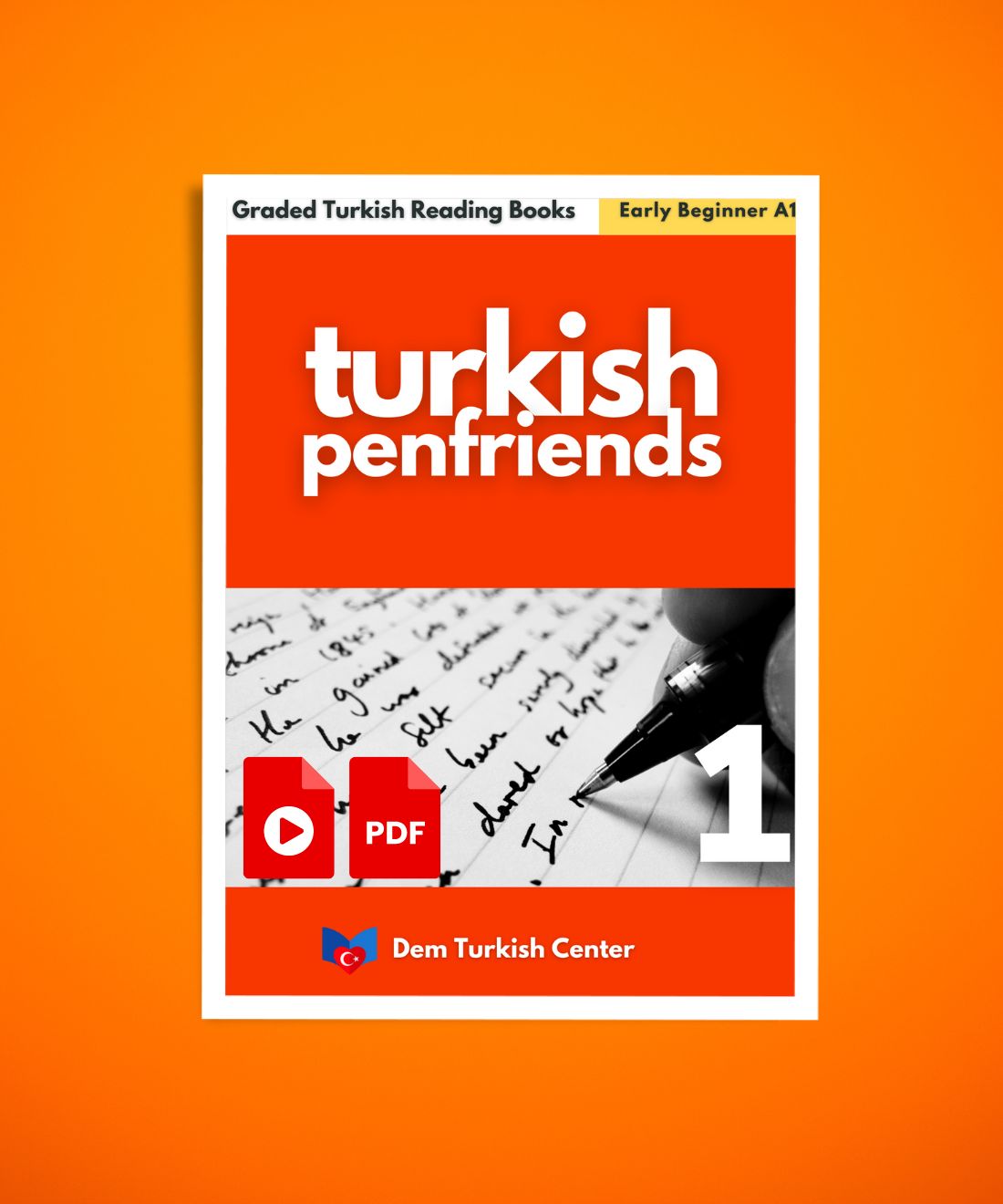
How Language Learning Transforms Your Mind and Worldview
Acquiring a new language involves more than just memorizing words or perfecting grammar; it’s an experience that reshapes your thinking and expands your perspective in meaningful ways.
Whether you're studying Turkish for self-improvement or learning French for career opportunities, language learning extends beyond communication—it introduces new ways of thinking, deepens cultural understanding, and challenges preconceived notions about the world.
Learning Turkish language? Become a memberand get the full access to the bookstore - for 1 year!
HOW TO TRANSFORM YOUR MIND WITH LANGUAGE LEARNNG
In this guide, we’ll delve into how mastering a language can transform your mindset and outlook, making it one of the most fulfilling pursuits you can undertake.
Download Turkish language courses for self-study!
1. Language Learning Enhances Cognitive Abilities
Acquiring a new language demands active mental involvement, and over time, it enhances brain function in surprising ways. Research indicates that bilingual or multilingual individuals exhibit stronger memory, sharper problem-solving skills, and greater multitasking abilities.
This is due to the fact that language learning compels the brain to develop new neural pathways, which are crucial for cognitive flexibility.
Learning a language trains your brain to identify patterns, distinguish subtle differences in meaning, and navigate different rule systems. This enhances its ability to process information efficiently, strengthening critical thinking skills.
Additionally, studies suggest that language learning can delay the onset of age-related cognitive decline and dementia. In other words, being multilingual not only sharpens your mind but also contributes to long-term brain health as you age.
Download Turkish language lessons for self-study!
2. Increases Empathy and Emotional Intelligence
One of the most profound advantages of learning a new language is the cultivation of empathy. Language is more than just a communication tool—it reflects how a culture perceives the world.
As you study a new language, you begin to see things from a different perspective. For instance, the way emotions are expressed, relationships are described, or even concepts like time are understood can differ significantly from what you’re used to in your native language.
Take Turkish, for example, where pronouns and verb forms shift depending on respect and familiarity, whereas English often relies on tone and context to convey the same nuances.
Immersing yourself in these linguistic subtleties deepens your understanding of how other cultures think and feel, fostering empathy and enhancing your ability to connect with people from diverse backgrounds.
Additionally, learning a language requires embracing vulnerability—especially when making mistakes or struggling to communicate. This experience strengthens emotional intelligence by teaching patience, resilience, and the ability to navigate social interactions with greater sensitivity.
Download Turkish language books for self-study!
3. Expands Cultural Awareness
Language and culture are deeply interconnected. The expressions we use, the idioms we create, and the way we construct sentences are all influenced by the values and norms of the societies we belong to.
When you learn a new language, you’re not just memorizing rules—you’re also gaining insight into the culture that shapes it.
For instance, studying Japanese introduces you to the significance of hierarchy and respect, reflected in its intricate system of honorifics.
Likewise, learning Spanish can offer a glimpse into the strong emphasis on family and community found in many Latin American cultures. Language learning also opens the door to literature, music, traditions, and customs you might not have encountered otherwise, fostering a more global perspective.
As you gain a deeper understanding of these cultural nuances, you may start to question your own cultural assumptions. This process can lead to greater open-mindedness, reducing the tendency to generalize or stereotype.
In an increasingly interconnected world, such cultural awareness is invaluable for promoting cross-cultural communication and strengthening connections between diverse communities.
Download Turkish language worksheets for self-study!
4. Shifts Your Perspective on Identity
Language is more than just a tool for communication—it is a fundamental part of identity. When you learn a new language, it can feel like stepping into a different version of yourself.
You may notice that certain aspects of your personality become more prominent in one language, while others take a backseat in another.
For example, you might feel more confident speaking English due to your familiarity with it, whereas communicating in Turkish could make you more reserved or reflective as you adapt to different cultural norms and expectations.
This shift in identity can be transformative, allowing you to explore new facets of yourself and become more adaptable in various social settings.
Moreover, learning a language often sparks introspection. As you analyze the structure of a new language, you may also begin to reconsider the framework of your own thoughts.
What concepts are difficult to express in your native language? What unspoken rules shape the way you communicate? This process fosters greater self-awareness and personal growth.
Take Turkish language practice classes online!
5. Opens New Opportunities for Connection
At its core, language serves as a bridge between people. Learning a new language opens the door to deeper, more meaningful connections. Whether you're conversing with native speakers, traveling, or engaging with diverse communities online, knowing another language allows you to interact beyond surface-level exchanges.
Speaking someone’s native language instantly fosters respect and trust. People are more likely to engage with you in a genuine way, as they feel acknowledged and understood on their own terms.
These connections can enhance your personal life, expand your professional network, and even lead to friendships or collaborations that wouldn’t have been possible without your language skills.
6. Broadens Your Worldview
Ultimately, learning a language reshapes the way you see the world. It encourages you to view life from multiple perspectives, to understand the nuances of human behavior, and to recognize the diversity of thought that exists across cultures.
It teaches you that there is no one "right" way to think, speak, or live; rather, each language offers a unique way of making sense of the world.
In a rapidly globalizing world, this expanded worldview is invaluable. It makes you more adaptable, open-minded, and appreciative of the diversity around you.
You’ll find that your new language skills not only help you navigate the world more effectively but also make you a more engaged and compassionate global citizen.
Language learning is more than a skill—it’s a transformative experience that affects how you think, how you relate to others, and how you understand the world. From enhancing cognitive abilities to fostering cultural empathy and expanding your worldview, the benefits of learning a language extend far beyond fluency.
It’s a journey that opens new doors, challenges your assumptions, and helps you become a more well-rounded, connected, and thoughtful individual. So, whether you're starting with Turkish, French, or any other language, know that you’re not just learning to speak; you’re learning to see the world in a completely new way.














